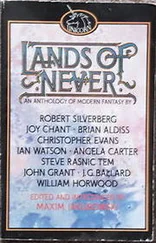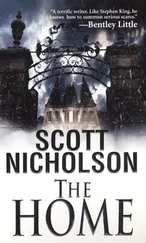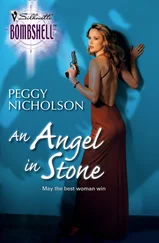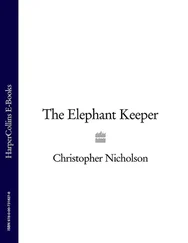Let me give another instance: the motor-car. Motor-cars exist, they have existed for a number of years, they are very convenient and useful machines, for that reason I have attempted to persuade him to buy one. A motor-car would be more than convenient, I say to him, it would be liberating; we could drive round the countryside and look at some scenery, or we could visit the sea. The sea is not that far away and on the spur of the moment we could visit the sea. Would that not be lovely? On a day like this, with a little sun, to walk along the beach and smell the sea-air? To breathe the sea-air? We could take Wessie, too! Would it be so hard to unchain yourself from your desk for one day, for a single day, to visit the sea? But it doesn’t have to be the sea; if you prefer, we could visit a church or some prehistoric earth-work, or we could even go to Stonehenge! How easy it would be, and how good for us both! We could easily afford a car, after all you are the wealthiest writer in the country according to Cockerell. And, I hurry on, for I have thought about this a great deal, I have waited my moment, I have the arguments at my finger-tips, we would not need to employ a driver because I should learn to drive. A motor-car is not like a horse and carriage; it is as easy for women to drive as men, or so people say, and it would make all the difference to me, it would give me such confidence, I who have always lacked confidence, it might even give me the sense that I was in control of my own destiny, whatever my destiny is. Of course I have never managed to say all this to him, most of it is merely what I imagine I might say. The truth is that we do not have our own motor-car and therefore whenever we wish to go anywhere we have to plan well in advance, employing Mr. Voss, who works for a taxi company in the town, and I have to sit in the back as women always do, and Thomas who insists on sitting in the front never hears a word when I speak, or if he does hear he does not reply, or if he does reply I cannot hear him. Conversation between the front and the back of a motor-car is all but impossible. I do not understand why we cannot have a motor-car. Is it that they did not exist in his youth, that he regards them as in some way contrary to nature, that they are too noisy? Or that he cannot bear the thought of being driven by me? Or that I might drive to the sea by myself, leaving him alone? My suspicion is that he does not want us to have a motor-car because, while he may not realise it, part of him wants to keep me here, looking after him, day after day, night after night.
Elsie and Nellie are both in the scullery, pretending to polish the silver. I know what goes on here. Every day they put out the silver as if they are about to polish it, and then they sit and gossip. This happens every single day!
They look at me in a resentful manner.
‘I am afraid there has been another fall of soot in the drawing room. Did neither of you see it when you drew the curtains?’
‘No, ma’am.’ It is Nellie who speaks; Elsie is a mouse of a girl.
‘Well; there it is. I don’t care which of you does it, but please get it done.’
‘Yes, ma’am.’
They do not like me, I am convinced of it. I cannot tell why, but I have never known how to talk to servants. It is just the same with Mr. Caddy and Mrs. Simmons. I never manage to strike the right note, I always sound so severe. Did his first wife manage any better?
While they set to work I take Wessie outside and give him his usual brush. We both enjoy this. Dear little Wessie! I don’t know what I would do without Wessie, truly I don’t.
Five minutes later, I am back in the drawing room (which still smells of soot). Settled at my desk, I examine the post. More than half of the letters bear London post-marks, which is usual; the majority of my husband’s readers are city-dwellers who dream of living in the country. For them the country is a perpetual summer. O, what I could tell them of country life in the winter!
Carefully I slit the envelopes with my paper knife. First, a letter from the President of the Wimbledon Literary and Scientific Society, inviting Thomas to attend one of its monthly meetings. ‘I am confident that you will have a warm and appreciative audience, for many of our members are avid readers of your novels and will be gratified by your presence.’ The answer is no: honoured as he is by the invitation, his health is not good enough nowadays for him to travel up to London, but he wishes the Society well.
Secondly, a letter from a female journalist, who is preparing an article for a newly established women’s magazine, ‘The Modern Woman’. She claims to be a lifelong devotee of his work (as do most journalists), and asks whether she may call here in order to carry out an interview. The magazine is illustrated, and she hopes that it is acceptable for a photographer to accompany her. She suggests two dates in the middle of December or, failing those, one in early January (any later and she will miss what she calls her ‘dead-line’). She and the photographer will catch the London train and arrive about noon, if that is convenient. The answer, again, and emphatically, is no, it is not convenient: he is too busy to give interviews, but wishes her well with her article.
A letter from The National Society for the Prevention of Cruelty to Children asks for support. I reply to this on my own behalf, sending a cheque for five pounds. I can ill afford it, but the way that children are treated in the slums of the East End horrifies me.
What next? Two letters requesting his autograph. These autograph-hunters are so persistent. Many of them employ cunning ruses, pretending to be young children, writing in misshapen capitals; but I am not fooled.
Next, a letter from a Miss Eleanor Pope of Islington, who declares that she loves his novels more than those of any other writer, and praises his profound understanding of the female mind; even George Eliot, she writes, does not come close. O! Miss Pope! Sit down, let me tell you the truth –
Another letter: this one from a Mr. Edward Bowles of East Grinstead who has apparently expended much time and energy on the task of identifying the locations of the places mentioned (though with fictional names) in the novels. He attaches a list of such identifications which he is ‘pretty well certain’ are correct, but if there are any errors he would like to know of them. Several places, despite much research (last spring he undertook an extensive cycling tour of Wessex), he has been unable to identify. He lists them. Mr. Bowles appears to be entirely unaware that: a) a book has been written on this very subject and b) several prefaces to the novels make it clear that certain locations are impossible to identify because they do not correspond to real locations!
Now to the parcel, which turns out to hold a manuscript collection of poems by a gentleman of St. Albans, one Harold Blacker. Mr. Blacker has written before, it seems, for his accompanying letter, in a florid hand, begins thus:
My dear Sir,
Thank you for the exceptionally kind letter which you sent me last year about ‘The Rains of Paradise’. I am pleased to say that I have now completed another volume, ‘The Rowan Tree – An Odyssey in Twenty Poems’, which I enclose with great admiration for a man who as all acknowledge stands preeminent in the world of modern letters.
Why am I spending my life on this drudgery? Am I not worth more? I am a writer too! Jumping up, so suddenly that my chair topples to the floor, I rush up the stairs to his study. I fling open the door and brandish the paper knife which I find sprouting in my hand. Why do you never think of me, you who are supposed to know so much about the female mind? Why do you take me for granted? Why do you never write any poems about me? What has happened between us? What about the trees? Why O why will you not accede to this one, small request? Why are you so obstinate?
Читать дальше












